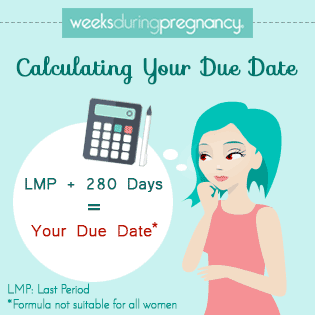
Southern Baptists and IVF: What You Need to Know About This Hot Topic
March 29, 2025
J.D. Vance on IVF: A Deep Dive into His Views, Life, and What It Means for You
March 29, 2025IVF Pregnancy Due Date Calculator: Your Ultimate Guide to Knowing When Baby Arrives
So, you’ve just found out you’re pregnant through IVF—congratulations! Whether it’s your first time or you’re a seasoned pro at this fertility journey, one big question is probably swirling in your mind: When will my baby be here? That’s where an IVF pregnancy due date calculator comes in—like a crystal ball for your little one’s arrival. But let’s be real: figuring out due dates with IVF isn’t as simple as counting nine months from a romantic night. It’s a whole different game, and we’re here to break it down for you—step by step, with all the juicy details you didn’t know you needed.
In this guide, we’ll dive deep into how these calculators work, why IVF due dates are unique, and what you can expect along the way. Plus, we’ll spill some secrets—like how your embryo’s “age” plays a role and why your due date might shift after an ultrasound. Expect practical tips, fun facts, and even some fresh research to keep you in the loop. Ready? Let’s get started!

What Makes an IVF Due Date Different?
When you conceive naturally, doctors usually base your due date on the first day of your last period. Easy, right? But with IVF, things get a bit more… sci-fi. You’re not waiting for ovulation or guessing when conception happened—because you know exactly when your embryo was created and transferred. That’s the magic of IVF: precision. Here’s what sets it apart:
Why It’s Not Like a “Regular” Pregnancy
- No Last Period Guesswork: With natural pregnancies, the due date assumes a 28-day cycle and ovulation around day 14. IVF skips all that because your embryo’s journey starts in a lab.
- Embryo Age Matters: Whether it’s a 3-day or 5-day embryo transfer, the “age” of your embryo when it’s placed in your uterus changes the math.
- Pinpoint Timing: IVF gives you a front-row seat to conception—egg retrieval, fertilization, and transfer dates are all tracked down to the minute.
The Emotional Twist
Here’s a little secret: lots of IVF parents say knowing the exact start of their pregnancy feels like having a superpower. “It’s like I’ve got this VIP pass to my baby’s timeline,” says Lisa, a mom who went through IVF last year. But it can also make you obsess over every milestone—trust me, you’re not alone if you’re already counting the days!
Quick Fact
Did you know IVF due dates are often more accurate than natural ones? A 2023 study from the Journal of Assisted Reproduction found that IVF pregnancies have a tighter delivery window (within 5-7 days of the due date) compared to natural conceptions (up to 14 days). Cool, huh?
How Does an IVF Pregnancy Due Date Calculator Work?
Alright, let’s get to the good stuff—how do you actually figure out when your baby’s big debut will be? An IVF due date calculator isn’t just a fancy online tool; it’s your personal pregnancy GPS. Here’s the breakdown:
The Basic Formula
Most pregnancies last about 40 weeks (280 days) from the first day of your last period. But since IVF doesn’t rely on periods, we tweak the math:
- 3-Day Embryo Transfer: Add 263 days to your transfer date.
- 5-Day Embryo Transfer: Add 261 days to your transfer date.
Why the difference? A 5-day embryo (called a blastocyst) is two days “older” than a 3-day embryo, so it needs less time to reach full term.
Step-by-Step Example
Let’s say your 5-day embryo transfer was on March 1, 2025:
- Start with March 1.
- Add 261 days.
- Boom—your due date lands around November 17, 2025.
For a 3-day transfer on the same day, you’d add 263 days, landing on November 19, 2025. Simple, right?
Fresh vs. Frozen Transfers
Here’s where it gets interesting:
- Fresh Embryo Transfer: Count from the transfer date (usually 3 or 5 days after egg retrieval).
- Frozen Embryo Transfer (FET): Same deal—use the transfer date, no matter how long the embryo was frozen. The freezer doesn’t add “time” to your pregnancy clock!
Pro Tip
✔️ Double-check your transfer date with your clinic. One day off can shift your due date!
Why You’ll Love Using an IVF Due Date Calculator
You might be thinking, “Can’t my doctor just tell me this?” Sure, they can—but having your own calculator is like having a cheat code for your pregnancy. Here’s why it’s a game-changer:
You’re in Control
- Track your progress week by week.
- Plan your baby shower or nursery setup without guessing.
Fun Perks
Some calculators (like the ones on WhatToExpect.com or BabyCenter.com) throw in extras:
- Your baby’s zodiac sign (Scorpio or Sagittarius, anyone?).
- Which trimester you’re in.
- Milestone alerts—like when your baby’s the size of a blueberry or a pineapple!
Hidden Gem
Ever wonder how many days pregnant you are right now? Plug in your transfer date, and bam—you’ll know. It’s oddly satisfying, like checking off days on a countdown calendar.
The Science Behind the Numbers
Okay, let’s nerd out for a sec. Why 261 or 263 days? It’s not random—it’s based on how long a baby takes to grow from conception to birth. Here’s the scoop:
The 38-Week Rule
- A full-term pregnancy is 38 weeks (266 days) from conception.
- With IVF, conception happens in the lab, and the embryo’s age (3 or 5 days) is subtracted from that 266-day total.
What Research Says
A 2024 study from the American Society for Reproductive Medicine confirmed that IVF babies tend to arrive closer to their calculated due dates than naturally conceived ones. Why? Doctors think it’s because we eliminate the “ovulation guessing game.”
Expert Insight
Dr. Jessica Ryniec, an IVF specialist, explains: “With IVF, we’re not estimating when conception happened—we know. That precision makes the due date a sharper target.”
What If My Due Date Changes?
Here’s a plot twist: your due date might not be set in stone. Even with IVF’s accuracy, things can shift. Let’s unpack why:
Ultrasound Adjustments
- Around 8-12 weeks, your doctor might do an ultrasound to measure your baby’s size.
- If the baby’s bigger or smaller than expected, they might tweak your due date by a few days.
Multiples Surprise
- Twins or triplets? They often arrive earlier—sometimes by weeks! For twins, expect a due date closer to 36-38 weeks, not 40.
Real-Life Example
“My 5-day transfer gave me a due date of December 10,” says Sarah, an IVF mom. “But my 10-week ultrasound bumped it to December 7 because baby was measuring ahead. I was like, ‘Wait, what?!’”
Tip
✔️ Don’t panic if your date shifts—it’s normal! Only about 4% of babies arrive exactly on their due date, IVF or not.
Fresh vs. Frozen: Does It Affect My Due Date?
You might’ve heard whispers at your clinic about fresh versus frozen embryo transfers (FET). Do they mess with your due date? Spoiler: not really. Here’s the lowdown:
Fresh Embryo Transfers
- Eggs are retrieved, fertilized, and transferred within days (usually 3 or 5).
- Due date is calculated straight from that transfer day.
Frozen Embryo Transfers
- Embryos are frozen, stored (sometimes for years!), then thawed and transferred.
- The due date still starts from the transfer date—not when it was frozen or retrieved.
Fun Fact
Frozen embryos don’t “age” in the freezer. A 5-day embryo from 2020, transferred in 2025, is still a 5-day embryo on transfer day. Time travel, anyone?
Research Update
A 2023 study in Fertility and Sterility found no significant difference in gestation length between fresh and frozen transfers. So, your calculator works the same either way!
Common Questions You Didn’t Know to Ask
Let’s tackle some head-scratchers that pop up when you’re knee-deep in IVF land. These are the things you won’t find on every blog—but you’ll wish you knew sooner.
Can My Due Date Predict My Baby’s Personality?
Okay, this one’s just for fun. Some parents swear their Scorpio IVF baby (due late November) is feistier than their chill Pisces kid (due early March). No science here—just a quirky bonus of knowing your due date early!
What If I Don’t Remember My Transfer Date?
No worries—your clinic keeps meticulous records. Call them, and they’ll dig it up faster than you can say “embryo.”
Does Stress Mess With My Due Date?
Nope! Stress might make you feel like time’s dragging, but it doesn’t change when your baby arrives. That’s all about biology, not your to-do list.
Expert Nugget
Dr. Luis Murrain, an OB-GYN, says: “IVF due dates are a starting point. Babies don’t read calendars—they come when they’re ready!”
Practical Tips for Using Your IVF Due Date
Now that you’ve got the basics, let’s make this actionable. Here’s how to use your due date like a pro:
Step-by-Step Guide
- Find Your Transfer Date: Check your IVF paperwork or call your clinic.
- Pick Your Tool: Use an online calculator (try Flo Health or BabyCenter) or do the math yourself.
- Mark Your Calendar: Add 261 (5-day) or 263 (3-day) days and circle that date.
- Track Milestones: Count weeks to plan doctor visits or baby prep.
Handy Checklist
✔️ Confirm your embryo type (3-day or 5-day) with your doctor.
✔️ Save your due date in your phone with a cute emoji (🍼 works!).
❌ Don’t stress if baby’s late—40 weeks is just an average.
Bonus Hack
Set a reminder 2 weeks before your due date to pack your hospital bag. You’ll thank yourself later!
The Emotional Side of Waiting
Let’s get real for a minute. IVF isn’t just about dates and numbers—it’s a rollercoaster of hope, nerves, and excitement. Knowing your due date can feel like a lifeline, but it can also spark some unexpected feelings.
The Countdown Craze
- Some parents love watching the days tick by—it’s like a pregnancy advent calendar.
- Others? They get antsy. “I’d check my due date calculator daily, even though it never changed,” admits Jen, an IVF mom of twins.
Coping Tips
- Celebrate Small Wins: Hit 12 weeks? Treat yourself to ice cream.
- Lean on Your Crew: Share your due date with friends—they’ll hype you up!
- Distract Yourself: Binge a new show or start a baby blanket project.
Fun Stat
A 2024 survey from Parents Magazine found that 68% of IVF moms felt “more connected” to their pregnancy once they knew their due date. You’re not alone in this!
What Happens If Baby Arrives Early or Late?
Even with IVF’s precision, babies love to keep us guessing. Here’s what to expect if your little one doesn’t stick to the script:
Early Birds
- Why It Happens: Multiples, preterm labor, or just an eager baby.
- What to Do: Trust your doctor—they’ll monitor you closely, especially after 36 weeks.
Fashionably Late
- Why It Happens: Baby’s still cozy, or your body’s taking its time.
- What to Do: After 41 weeks, your doctor might suggest induction.
Real Talk
“I was sure my IVF due date was gospel,” says Maria, a first-time mom. “Then my son showed up 10 days early—total curveball!”
Latest Research
A 2025 study in Obstetrics & Gynecology found that IVF babies are slightly more likely to arrive early (37-39 weeks) than late. Keep that hospital bag ready!
Busting Myths About IVF Due Dates
There’s a lot of chatter out there—some true, some not so much. Let’s clear the air:
Myth #1: IVF Babies Always Come Early
- Truth: Not necessarily! While twins might, singletons often stick close to 40 weeks.
Myth #2: Frozen Embryos Delay Your Due Date
- Truth: Nope—the freezer pauses time, not pregnancy.
Myth #3: Calculators Are 100% Spot-On
- Truth: They’re close, but ultrasounds and baby’s growth can tweak things.
Expert Wisdom
Dr. Allison Rodgers, a fertility specialist, notes: “Calculators give you a solid baseline, but every pregnancy has its own rhythm.”
Beyond the Calculator: Planning Your IVF Journey
Your due date is just the beginning. Here’s how to use it to map out the next 9 months:
Trimester Timeline
- First Trimester (0-12 Weeks): Confirm pregnancy, start prenatal vitamins.
- Second Trimester (13-26 Weeks): Gender reveal, baby registry time!
- Third Trimester (27-40 Weeks): Nesting mode, childbirth classes.
Must-Know Milestones
| Weeks | What’s Happening | To-Do |
|---|---|---|
| 8-10 | First ultrasound | Ask about due date tweaks |
| 20 | Anatomy scan | Start nursery planning |
| 36 | Weekly checkups | Pack that hospital bag! |
Pro Tip
✔️ Use your due date to book a babymoon around 20-24 weeks—your last pre-baby getaway!
Fun Ways to Celebrate Your Due Date
Why not make it a party? Here are some ideas to mark the countdown:
Get Creative
- Due Date Reveal: Share it with a cute photo (think “Baby arriving [date]!” on a chalkboard).
- Countdown Chain: Make a paper chain with one link per day until D-day.
Personal Touch
- “I baked a cake with my due date on it,” says Emily, an IVF mom. “It felt like a mini milestone.”
Zodiac Sneak Peek
Curious about your baby’s star sign? A November 17 due date means Scorpio—intense and loyal. December 7? Sagittarius—adventurous and free-spirited!
The Big Picture: What Your Due Date Really Means
At the end of the day, your IVF due date isn’t just a number—it’s a promise of what’s to come. It’s the finish line of a journey that started with hope, science, and maybe a few tears. But it’s also a reminder: babies don’t punch a clock. Whether they arrive spot-on, early, or fashionably late, that moment will be yours.
Final Thought
Your calculator might say November 17, but your baby might say, “How about November 14?” Either way, you’ve got this—and we’re rooting for you every step of the way.
Let’s Chat—What’s Your Story?
Now it’s your turn! Drop a comment below and tell us:
- When’s your due date?
- How are you feeling about the wait?
- Any fun plans to celebrate?
Or, if you’ve already met your little one, spill the tea—was your due date spot-on? We can’t wait to hear from you!